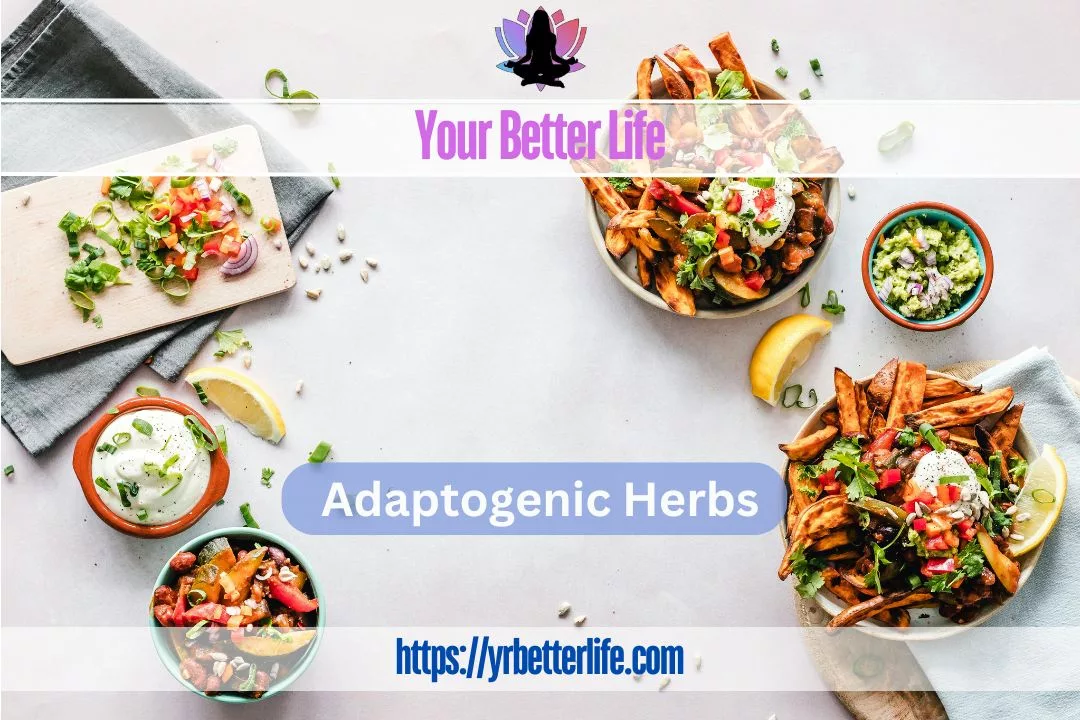
Introduction
Stress has become an almost ubiquitous aspect of daily life. From the demands of work to personal responsibilities, many of us are seeking natural ways to manage stress and improve overall well-being. One promising area of interest is adaptogenic herbs. These remarkable plants have been used in traditional medicine for centuries to help the body adapt to stress and restore balance. In this comprehensive guide, we will explore what adaptogenic herbs are, how they work, and delve into some of the most popular adaptogens and their uses.
What Are Adaptogenic Herbs?
Adaptogenic herbs, or adaptogens, are a unique group of botanicals that help the body resist and adapt to various stressors, whether physical, emotional, or environmental. Unlike stimulants or depressants, adaptogens work by normalizing the body’s functions and enhancing its ability to cope with stress. This holistic approach can lead to improved energy levels, mental clarity, and overall resilience.
The concept of adaptogens was first introduced in the 1940s by Russian scientist Dr. Nikolai Lazarev. He defined adaptogens as substances that increase the state of non-specific resistance in stress and decrease sensitivity to stressors. Since then, extensive research has been conducted, and several herbs have been classified as adaptogens.
How Do Adaptogens Work?
Adaptogens work through a variety of mechanisms to support the body’s response to stress:
- HPA Axis Modulation: The hypothalamic-pituitary-adrenal (HPA) axis is a central part of the body’s stress response system. Adaptogens help regulate the HPA axis, promoting a balanced release of stress hormones like cortisol.
- Cellular Energy Production: Adaptogens can enhance cellular energy production by supporting mitochondrial function. This leads to increased energy levels and improved physical endurance.
- Antioxidant Activity: Many adaptogens possess potent antioxidant properties, which help protect the body from oxidative stress and damage caused by free radicals.
- Immune System Support: Adaptogenic herbs can modulate the immune system, enhancing its ability to fight off infections and maintain overall health.
Popular Adaptogenic Herbs and Their Uses
There are numerous adaptogenic herbs, each with its unique properties and benefits. Here, we will explore some of the most well-known and widely used adaptogens:
Ashwagandha (Withania somnifera)
Ashwagandha, also known as Indian ginseng or winter cherry, is one of the most revered herbs in Ayurvedic medicine. It is known for its ability to reduce stress, improve sleep, and enhance cognitive function.
Stress Reduction: Ashwagandha helps lower cortisol levels, which can reduce stress and anxiety. Studies have shown that it can significantly decrease perceived stress and improve overall well-being.
Improved Sleep: Ashwagandha has been found to improve sleep quality and promote relaxation, making it a valuable herb for those struggling with insomnia or poor sleep.
Cognitive Enhancement: This adaptogen can boost brain function, memory, and concentration. It is often used to support cognitive health and protect againeurodegenerative diseases.
Rhodiola Rosea
Rhodiola Rosea, commonly known as Arctic root or golden root, is a powerful adaptogen native to the cold regions of Europe and Asia. It is renowned for its ability to enhance physical and mental performance.
- Physical Performance: Rhodiola has been shown to improve endurance and reduce fatigue during physical activities. Athletes and fitness enthusiasts often use it to boost their performance.
- Mental Clarity: This adaptogen can enhance cognitive function, memory, and mental clarity. It is particularly useful during periods of intense mental work or study.
- Mood Support: Rhodiola has antidepressant properties and can help alleviate symptoms of depression and anxiety.
Holy Basil (Ocimum Sanctum)
Holy Basil, also known as Tulsi, is a sacred herb in Hinduism and has been used for thousands of years in Ayurvedic medicine. It is celebrated for its ability to promote relaxation and support overall health.
- Stress Relief: Holy Basil helps reduce cortisol levels and promotes a sense of calm and relaxation. It is often used to combat stress and anxiety.
- Immune Support: This adaptogen has immunomodulatory properties, meaning it can enhance the body’s immune response. It is also rich in antioxidants, which protect against free radical damage.
- Respiratory Health: Holy Basil is beneficial for respiratory health and can help alleviate symptoms of respiratory conditions such as asthma and bronchitis.
Ginseng (Panax Ginseng)
Ginseng, particularly Asian ginseng (Panax ginseng) and American ginseng (Panax quinquefolius), is one of the most well-known adaptogens. It has been used for centuries in traditional Chinese medicine to enhance vitality and longevity.
- Energy Boost: Ginseng is known for its ability to increase energy levels and reduce fatigue. It can improve both physical and mental performance.
- Immune Support: Ginseng has immunomodulatory effects and can help strengthen the immune system, making it more resilient against infections.
- Cognitive Function: This adaptogen can enhance cognitive function, memory, and concentration. It is often used to improve mental clarity and protect against age-related cognitive decline.
Eleuthero (Eleutherococcus Senticosus)
Eleuthero, also known as Siberian ginseng, is another popular adaptogen with a long history of use in traditional medicine. It is known for its ability to enhance stamina and resilience.
- Physical Endurance: Eleuthero can improve physical performance and increase endurance, making it a favorite among athletes and those with physically demanding lifestyles.
- Stress Resistance: This adaptogen helps the body adapt to stress and reduces the negative effects of stress on the body and mind.
- Immune Support: Eleuthero has immune-boosting properties and can help protect against infections and illnesses.
Maca (Lepidium Meyenii)
Maca, also known as Peruvian ginseng, is a root vegetable native to the Andes Mountains. It is celebrated for its ability to boost energy, enhance libido, and improve overall well-being.
- Energy and Stamina: Maca is known for its energizing effects and can improve physical performance and endurance. It is often used as a natural alternative to caffeine.
- Hormonal Balance: This adaptogen can help balance hormones and alleviate symptoms of hormonal imbalances, such as PMS and menopause.
- Libido Enhancement: Maca has been shown to enhance libido and improve sexual function in both men and women.
Schisandra (Schisandra Chinensis
Schisandra, also known as five-flavor fruit, is a traditional Chinese herb known for its wide range of health benefits. It is prized for its ability to enhance vitality and promote longevity.
- Adaptogenic Properties: Schisandra helps the body adapt to stress and improves resilience. It can enhance physical and mental performance.
- Liver Health: This adaptogen supports liver function and detoxification. It is often used to protect the liver from damage and improve overall liver health.
- Cognitive Function: Schisandra can improve cognitive function, memory, and concentration. It is also known to enhance mood and reduce anxiety.
How to Incorporate Adaptogenic Herbs into Your Routine
Incorporating adaptogenic herbs into your daily routine can be a simple and effective way to support your health and well-being. Here are some tips on how to use adaptogens:
- Tinctures and Extracts: Adaptogenic herbs are often available in tincture or extract form, which can be easily added to water, tea, or smoothies. These forms are concentrated and provide a potent dose of the herb.
- Capsules and Tablets: For convenience, adaptogens are also available in capsule or tablet form. This is a great option for those who prefer a standardized dose and do not want to taste the herbs.
- Teas and Infusions: Many adaptogenic herbs can be brewed into teas or infusions. This is a soothing and enjoyable way to incorporate them into your routine. For example, holy basil makes a delicious and calming tea.
- Powders: Adaptogenic herbs are available in powdered form, which can be added to smoothies, soups, or other recipes. This is a versatile option that allows you to customize your intake.
- Topical Applications: Some adaptogens, like ashwagandha and ginseng, are also available in topical formulations such as creams or oils. These can be applied to the skin for localized benefits.
Potential Side Effects and Considerations
While adaptogenic herbs are generally considered safe for most people, it is important to be aware of potential side effects and interactions. Here are some considerations:
- Individual Reactions: Everyone’s body is different, and individual reactions to adaptogens can vary. Start with a small dose to see how your body responds.
- Interactions with Medications: Some adaptogenic herbs may interact with medications. If you are taking any prescription drugs, consult with a healthcare professional before using adaptogens.
- Pregnancy and Breastfeeding: The safety of adaptogens during pregnancy and breastfeeding has not been well-studied. It is best to avoid them during these periods unless advised otherwise by a healthcare provider.
- Quality and Sourcing: Ensure that you purchase adaptogenic herbs from reputable sources. Look for products that are organic, non-GMO, and free from contaminants.

Conclusion
Adaptogenic herbs offer a natural and holistic approach to managing stress and improving overall well-being. From ashwagandha to ginseng, these powerful botanicals have a wide range of benefits that
With warmth and compassion
Shaun

